Key Takeaways
- Asbestos claims after death are legal actions that family members can file for loved ones who died from asbestos-related diseases, primarily focusing on wrongful death lawsuits and trust fund claims.
- Eligible individuals to file claims include close family members like spouses and children, and those with legal authority over the deceased’s estate, emphasizing the need for proper legal guidance.
- Compensation from asbestos claims can cover medical and funeral expenses, with average settlements ranging from $1 million to $2 million for wrongful death lawsuits and $300,000 to $400,000 from trust funds.
Your search for help ends here. Let’s get started, for FREE.
Understanding Asbestos Claims After Death
Asbestos claims after death are legal claims filed by family members for loved ones who died from asbestos-related diseases such as mesothelioma. These claims hold asbestos companies accountable and alleviate the financial burdens resulting from a loved one’s death due to asbestos exposure.
There are several types of claims that can be filed after the death of a loved one due to asbestos-related diseases, including wrongful death lawsuits and trust fund claims. Understanding the types of claims and who can file them is crucial for families seeking justice and compensation.
The following subsections will delve into the specific types of asbestos claims after death and identify the individuals eligible to file these claims.
Types of Asbestos Claims After Death
Families can initiate an asbestos wrongful death claim to hold responsible parties accountable for an asbestos-related death. Key points about asbestos wrongful death claims stemming from asbestos exposure include:
- Compensation is pursued from the at-fault corporations.
- These claims differ from personal injury claims as they are filed after the victim has passed away.
- A wrongful death case occurs specifically when a person dies from mesothelioma due to asbestos exposure.
- Family members pursue legal action in such cases, including a wrongful death asbestos lawsuit.
Another type of asbestos claim includes asbestos trust fund claims for companies that have declared bankruptcy. These asbestos trust funds were established to manage future lawsuits regarding asbestos exposure, allowing survivors of those who died from mesothelioma or asbestos-related diseases to seek a trust fund claim for compensation.
Additionally, families of veterans who were exposed to asbestos may file veterans’ affairs claims for asbestos exposure and related deaths.
Who Can File Asbestos Claims After Death?
Eligibility to file an asbestos claim typically includes:
- Close family members such as spouses and children
- In some states, life partners
- Anyone with legal authority over the deceased’s estate (for wrongful death claims related to asbestos illnesses)
The right to take legal action usually extends to surviving family members, ensuring that the financial and emotional impacts of the loss are addressed.
It is crucial for those filing the legal claim to have legal authority, as this ensures that the claim is managed correctly and efficiently within the legal process. Understanding who can file these claims helps in taking the appropriate legal steps to seek justice and compensation.
| Step | Action | Details |
|---|---|---|
| Step 01 | Contact Advocate | Contact our experienced patient advocate team. |
| Step 02 | Hire Attorney | Hire an asbestos wrongful death attorney. |
| Step 03 | Gather Evidence | Gather supporting legal documents and evidence. |
| Step 04 | Examine Options | Determine your claim options with an attorney. |
| Step 05 | File Claim | File a claim after death. |
| Step 06 | Receive Compensation | If successful, receive financial compensation. |
| Source: Shuman Legal (www.ShumanLegal.com) | ||
Steps to File an Asbestos Claim After Death
Filing an asbestos claim after the death of a loved one due to an asbestos-related illness is a complex process that involves several steps.
Navigating this process can be challenging, especially since the deceased cannot provide firsthand evidence of exposure.
Family members can seek assistance from a mesothelioma legal team to handle each step of the claims process, providing essential guidance and support. Unfortunately, in some cases, a mesothelioma patient dies before the claim is resolved.
The following subsections will detail the key steps involved in filing an asbestos claim after death, including consulting an experienced mesothelioma lawyer, gathering evidence, and filing the claim.
Consulting an Experienced Mesothelioma Lawyer
Consulting a specialized asbestos attorney significantly maximizes your chances for higher compensation after a loved one’s death. An attorney specializing in asbestos litigation can help navigate the complex legal landscape to ensure appropriate compensation is secured. Asbestos attorneys, like Shuman Legal, provide extensive resources and support for families, assisting them in navigating claims effectively.
Shuman Legal handles nearly all of the work involved in filing a claim, making the process hassle-free and improving the chances for success. Their expertise and dedication ensure that families can focus on healing while seeking justice.
Gathering Evidence for Your Claim
Gathering evidence is crucial to demonstrating the connection between the death and asbestos-related disease. Important types of evidence to collect include medical records, employment history, and job-related documents. Establishing a comprehensive work history helps confirm asbestos exposure, which is essential for building a strong case.
Estate representatives are responsible for managing the necessary documentation to ensure the claim’s continuity. Experienced lawyers assist in gathering evidence and navigating the complexities of filing claims, creating a stronger case for compensation.
Filing the Asbestos Claim
The initial step in filing a claim is to engage a qualified attorney to assist in preparing and submitting the necessary documentation. Surviving loved ones of the deceased are responsible for filing a wrongful death claim for a mesothelioma lawsuit, including a wrongful death mesothelioma lawsuit and a mesothelioma wrongful death claim. In cases involving secondhand asbestos exposure, it must be proved that the exposure occurred through a worker who handled asbestos. If they choose to file wrongful death lawsuits or pursue a wrongful death action, they must ensure all evidence is properly documented.
Types of jobs associated with secondhand asbestos exposure claims include:
- Firefighters
- Construction workers
- Electricians
- Auto mechanics
Filing the claim involves meticulous preparation and submission of evidence to ensure a successful outcome.
Lost a Loved One?
Compensation Available Through Asbestos Claims
Compensation from wrongful death claims related to asbestos can cover medical expenses, funeral costs, and financial losses incurred due to the deceased’s illness. The average settlement from mesothelioma wrongful death lawsuits ranges between $1 million and $2 million. Asbestos wrongful death settlements often result in favorable outcomes, resulting in settlements for the survivors, typically awarded to the deceased’s beneficiaries.
Typically, the median payout from asbestos trust funds falls within the range of $300,000 to $400,000. This figure can often vary depending on specific cases. The following subsections will provide specific figures for average asbestos trust fund payouts and discuss the factors that can influence compensation amounts.
Average Payouts for Mesothelioma Wrongful Death Claims
The average mesothelioma settlement amount for mesothelioma claims is approximately $1 million to $1.4 million. The average payout from mesothelioma trust funds typically ranges between $300,000 and $400,000. These amounts can provide significant financial relief to families dealing with mesothelioma compensation, mesothelioma settlements, and the loss of a loved one.
Compensation types following a loved one’s death include:
- Wrongful death lawsuits
- Asbestos trust funds
- Funeral expenses
- Medical costs
- Lost wages
These financial supports help families cope with the economic impact of their loss.
Factors Affecting Compensation Amounts
The compensation amount can be influenced by the patient’s age and the specific details of exposure. Younger patients or those with extensive work histories involving asbestos exposure may receive higher compensation due to the greater impact on their earning potential and quality of life.
Legal Requirements and Statutes of Limitations
The statute of limitations for filing an asbestos lawsuit generally ranges from one to four years, depending on state laws. Most states impose a two-year limit for filing wrongful death claims related to asbestos exposure. In some states, the statute of limitations for personal injury and wrongful death claims starts when the victim is diagnosed or passes away.
Timely filing of claims ensures that families do not miss out on their legal rights due to strict deadlines that vary by state. Without legal representation, claimants risk facing denial or undervaluation of their claims by insurers or responsible parties related to filing asbestos claims and asbestos exposure.
Why File Asbestos Claims Before Death?
Filing claims before death is important because:
- It preserves critical evidence.
- It allows for firsthand account participation.
- Mesothelioma treatments, such as chemotherapy, can impair memory and hinder the ability to assist in filing claims, making early filing crucial.
- Early filing facilitates better case preparation with a detailed asbestos exposure history.
Securing financial compensation and justice before a loved one’s death is essential for alleviating financial burdens and providing a sense of closure. This proactive approach can significantly impact the outcome of the claims, seek compensation, and help you pursue financial compensation.
Managing Asbestos Claims Post-Death
Family members can continue a deceased person’s filed asbestos lawsuit as a wrongful death case. The estate representative can continue handling an asbestos claim even after the original claimant has passed away. This representative is usually the executor of the will or someone appointed by the court. A family member can also play a crucial role in this process.
The estate representative plays a crucial role in managing the claim and making decisions on the deceased plaintiff’s behalf. This ensures that the claim proceeds smoothly and the family receives the compensation they deserve.
Seeking Legal Guidance and Support
Mesothelioma advocates can assist estate representatives by providing legal resources and support throughout the claims process after a death, including mesothelioma lawsuits. Shuman Legal works on a contingency fee basis, meaning clients pay only if they win compensation, alleviating upfront financial burdens.
Seeking expert legal guidance is crucial in navigating the complexities of asbestos litigation after the loss of a loved one. Having an experienced mesothelioma lawyer and mesothelioma lawyers is essential for maximizing compensation and navigating legal processes effectively.
Frequently Asked Questions
Who is eligible to file an asbestos claim after death?
Only close family members, including spouses and children, as well as life partners in some jurisdictions and individuals with legal authority over the deceased’s estate, are eligible to file an asbestos claim after death.
What types of compensation are available through asbestos claims?
Asbestos claims can provide compensation for medical expenses, funeral costs, and financial losses resulting from the illness. Settlements for mesothelioma wrongful death lawsuits typically range from $1 million to $2 million, while trust fund payouts average between $300,000 and $400,000.
How does consulting an experienced mesothelioma lawyer help in filing an asbestos claim?
Consulting an experienced mesothelioma lawyer is crucial as they can expertly navigate the complexities of asbestos claims and increase your chances of securing higher compensation, while also managing the intricate legal work for you.
What is the statute of limitations for filing an asbestos wrongful death claim?
The statute of limitations for filing an asbestos wrongful death claim typically ranges from one to four years, with most states imposing a two-year limit. It is essential to act promptly to protect your legal rights.
Why is it important to file asbestos claims before death?
Filing asbestos claims before death is crucial as it preserves vital evidence and enables personal participation in the case, ultimately securing compensation to address financial and emotional challenges. Taking action early ensures that justice is sought while it can still be effectively pursued.
Related Article
Settlement Value of Spinal Cord Stimulation Implantation: What to Expect















